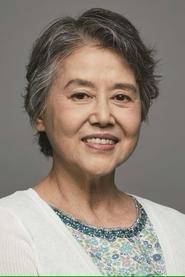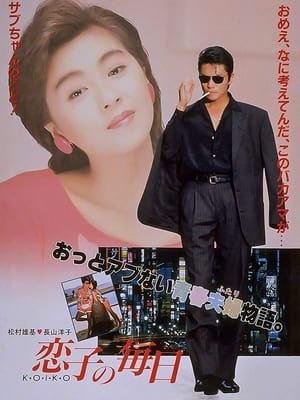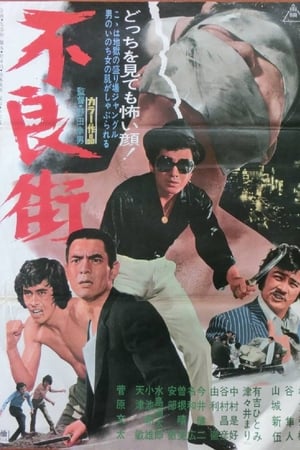

The Pearl Attack Rapist(1979)
1979 pink film.
Movie: The Pearl Attack Rapist
Top 9 Billed Cast
Similar Movies
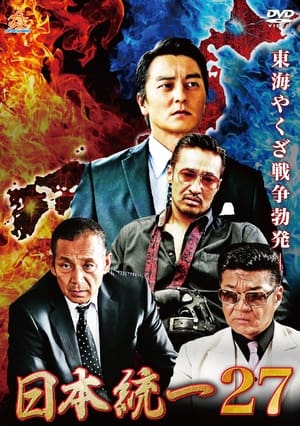 5.0
5.0Unification of Japan 27(ja)
Tension continues at the Kyowakai headquarters. Kawatani, Himuro, and Tamura are unable to hide their anger and confusion at the events that occur one after another, such as Shibuya's death and a series of absentees from meetings. Meanwhile, in Kobe, a new anti-chivalry group is starting to move. However, Baba, who plays the role of chairman and does not know about Shibuya's death, postpones the official raising of the company.
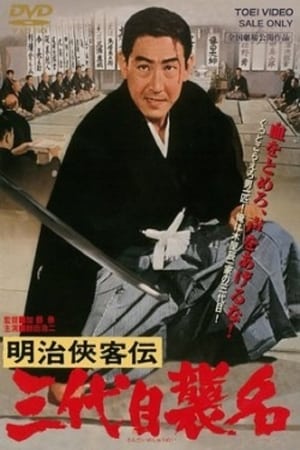 6.6
6.6Blood of Revenge(ja)
Osaka, 1907: Asajiro lives between a rock and a hard place: he has to keep his business clean and running, tame his late oyabun’s hot-blooded son and suffer the throes of his impossible love for beautiful geisha Hatsue.
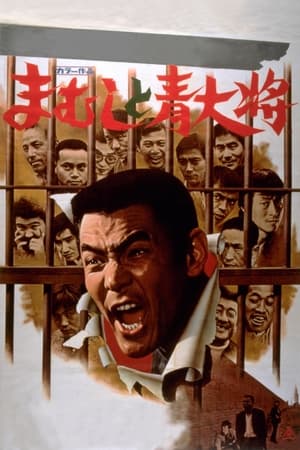 0.0
0.0The Viper Brothers and the Young General(ja)
The last in the series. Sugawara runs into two mahjong cheaters (Ichiro Araki and Mako Midori + sidekick Takuzo Kawatani) whom he takes for friends in need as his naivety prevents him from seeing their true nature.
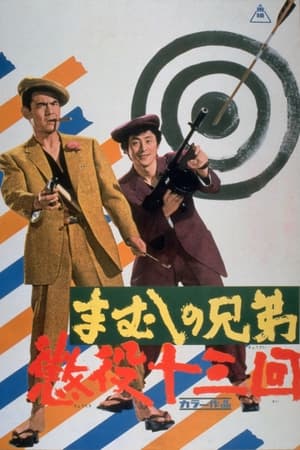 0.0
0.0The Viper Brothers: Prison Gang 13(ja)
Part 3 in a long running (8+1 films) action/comedy/melodrama series about a pair of short tempered, amoral, but not evil chinpira (Bunta Sugawara and Tamio Kawachi) thinking too big of themselves.
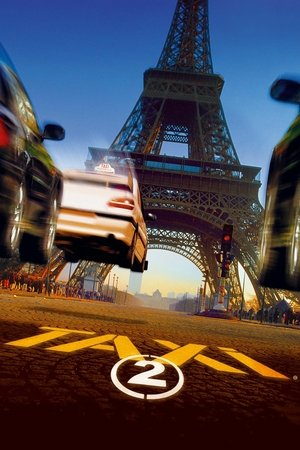 6.3
6.3Taxi 2(fr)
A cabdriver and a cop race to Paris to rescue a love interest and the Japanese minister of defense from kidnappers.
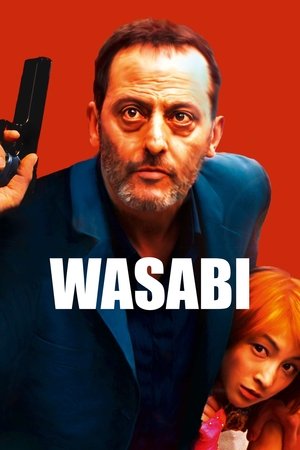 6.6
6.6Wasabi(fr)
Hubert is a French policeman with very sharp methods. After being forced to take 2 months off by his boss, who doesn't share his view on working methods, he goes back to Japan, where he used to work 19 years ago, to settle the probate of his girlfriend who left him shortly after marriage without a trace.
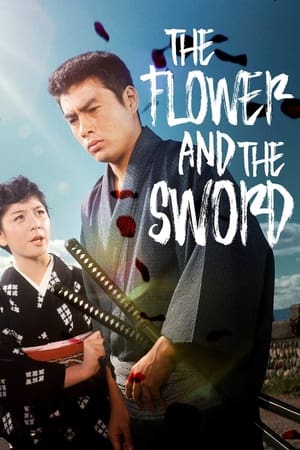 0.0
0.0The Flower and the Sword(ja)
A dangerous mobster threatens the life of a businessman's mother in this thriller. As Ryuji oversees the building of a bridge in Japan, a powerful gangster plans to stop the project. By any means necessary.
 7.6
7.6Dolls(ja)
Dolls takes puppeteering as its overriding motif, which relates thematically to the action provided by the live characters. Chief among those tales is the story of Matsumoto and Sawako, a young couple whose relationship is about to be broken apart by the former's parents, who have insisted their son take part in an arranged marriage to his boss' daughter.
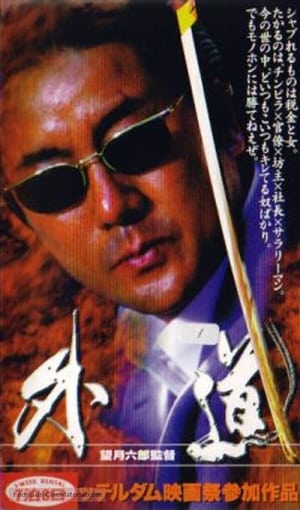 6.0
6.0The Outer Way(ja)
The cop Himuro is picked as scapegoat by his superiors because of their own involvement in sokaiya gangster practices.
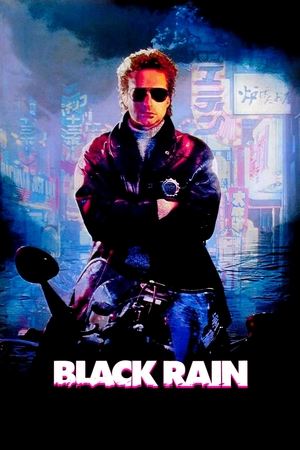 6.6
6.6Black Rain(en)
Two New York cops get involved in a gang war between members of the Yakuza, the Japanese Mafia. They arrest one of their killers and are ordered to escort him back to Japan. However, in Japan he manages to escape, and as they try to track him down, they get deeper and deeper into the Japanese Mafia scene and they have to learn that they can only win by playing the game—the Japanese way.
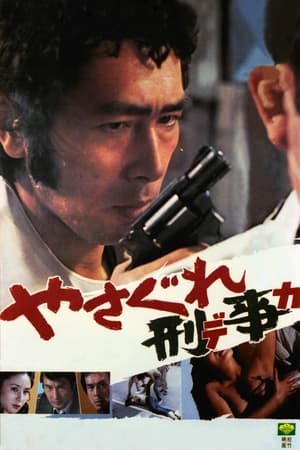 5.3
5.3Outlaw Cop(ja)
A bad cop is engaged in a violent chase to catch a yakuza boss. In his absence his wife runs away with another man, who turns out to be the very same man that her husband is hunting. Once he discovers this, he loses his nerve and turns in his badge. But the chase turns into a personal vendetta where the ex-cop plans to wipe out the entire gang.
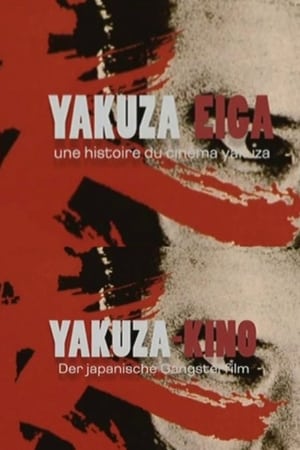 7.0
7.0Yakuza Eiga, une histoire du cinéma yakuza(fr)
The history of the Yakuza Eiga at the TOEI studio is roughly outlined. Real Yakuza and also their connections to the movie business are discussed, and many important actors and directors of the genres are interviewed. Former real yakuza boss turned actor Noboru Ando, Takashi Miike, Sonny Chiba and many more get a chance to speak.
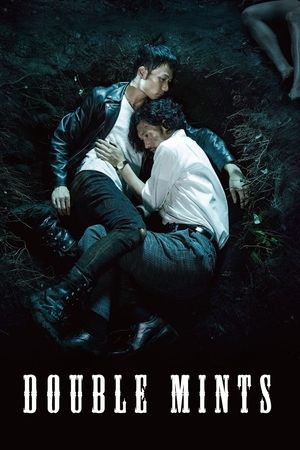 6.1
6.1Double Mints(ja)
Mitsuo Ichikawa reconnects with his former schoolmate and mentor, only to discover he's a thug and a murderer. Instead of distancing themselves, they forge a new alliance.
 7.3
7.3Gray Wall Gear(ja)
The stage of this work is Saitama, a suburb of Tokyo in the early Heisei period. Immediately after the bubble burst gangster countermeasures law, there were gangsters who defended the last territory and young people who freely controlled the city. The youth conflict escalated day by day and became a force that surpassed the yakuza, and the runaways were sent to juvenile prisons one after another, where exclusive rules awaited.
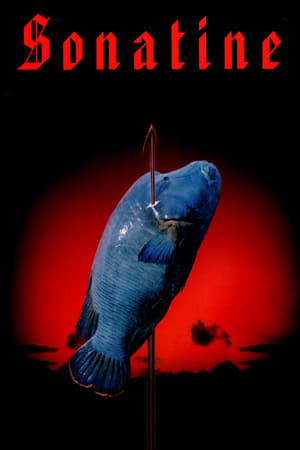 7.5
7.5Sonatine(ja)
Murakawa, an aging Tokyo yakuza tiring of gangster life, is sent by his boss to Okinawa along with a few of his henchmen to help end a gang war, supposedly as mediators between two warring clans. He finds that the dispute between the clans is insignificant and whilst wondering why he was sent to Okinawa at all, his group is attacked in an ambush. The survivors flee and make a decision to lay low at the beach while they await further instructions.
 6.3
6.3High & Low The Movie(ja)
Chiku is a devastated and dangerous town with 5 gangs fighting fiercely. Mugen and the Amamiya Brothers clashed, leading to Mugen disbanding.
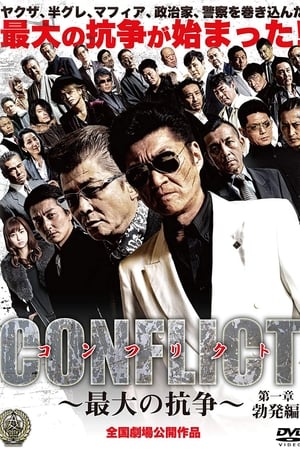 7.0
7.0CONFLICT: Outbreak(ja)
The Hyodo-gumi boss—part of Tendokai, Japan’s largest yakuza syndicate—has been brutally murdered. Kazuma Washio (Hitoshi Ozawa), the head of the Washio-gumi and Tendokai’s wakagashira (underboss), is convinced that Yoshinari Myojin (Sho Aikawa), a former Tendokai wakagashira-hosa now running Tokyo’s underworld of thugs and mafia, is behind the killing. Around the same time, Tendokai's 5th-generation chairman Katsushige (Hakuryu) orders Washio to secure a woman named Nagi Toyama (Akane Hotta). Washio sets out with his men, Okita (Yasukaze Motomiya) and Date (Hideo Nakano), but they’re ambushed by a group of heavily armed youths. Barely escaping, they manage to bring Nagi to their hideout—only to discover she’s a key player in a power struggle over the Tokyo Casino Project. And so begins the greatest conflict yet, entangling yakuza, mafia, street gangs, the police, and even the state itself—
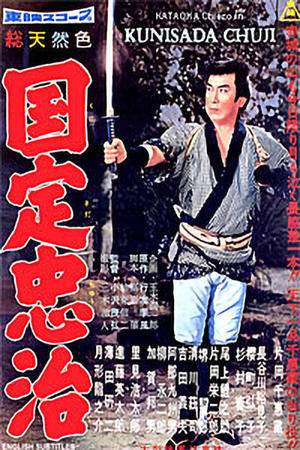 5.2
5.2Kunisada Chuji(ja)
Kunisada Chuji is a common folk hero who looks out for poor people in the country who are at the mercy of corrupt officials. Intent on fulfilling a dying wish from one of his henchmen, Asataro, to find a decent home for his young nephew, Chuji descends from his hide-out in the mountain, and heads to the city in spite of numerous dangers that await him there.
